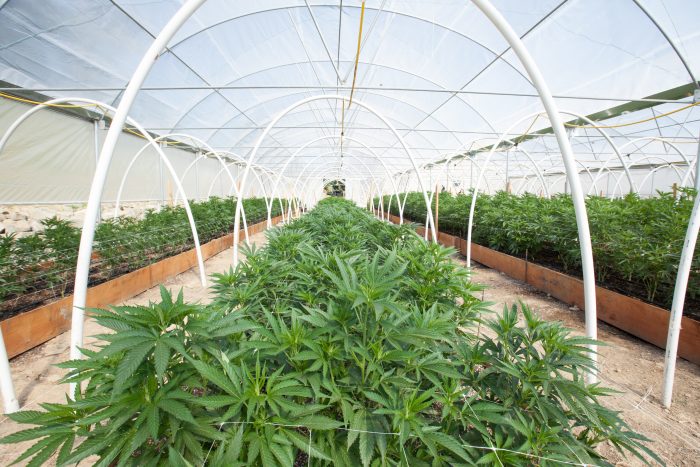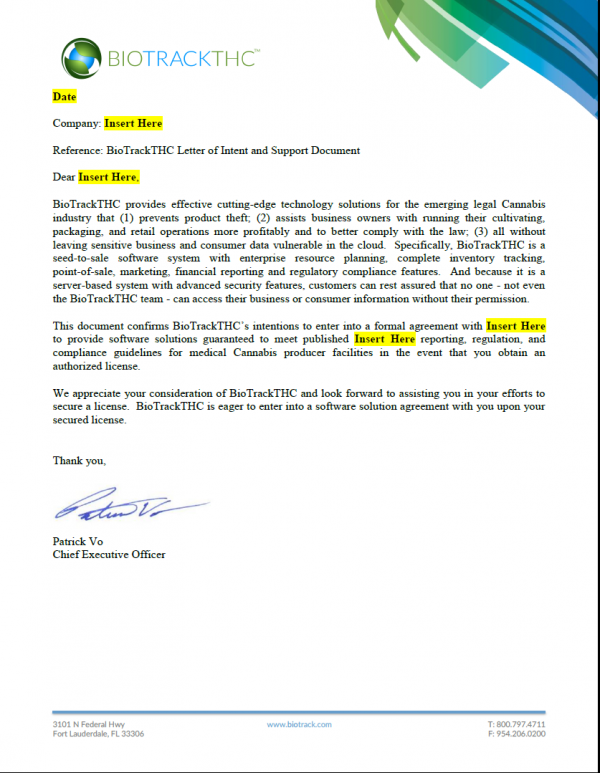State Information will be updated here as it becomes available. Check back for updates! Please note; while we aim to keep this pages fully up to date with the latest information, cannabis laws are always changing. We encourage you to verify these rules and regulations in the official legal text, which we’ve linked throughout the page for your convenience.
In order to apply for a marijuana business license in Arkansas, prospective applicants are required to prove possession of $200,000 in security bond, with a minimum of $100,000 in liquid assets in order to be considered, in addition to the following:
Definition
Dispensaries sell cannabis and cannabis products in a legal, regulated setting. In Arkansas, dispensaries are licensed to:
● Accept marijuana seedlings, plants, and usable cannabis from cultivation facilities and dispensaries, as well as from individuals who legally possess marijuana seeds, seedlings, and plants.
● Transfer or sell marijuana seedlings, plants, and usable cannabis to cultivation facilities and other dispensaries.
● Undertake limited cultivation activities.
Requirements
To apply for a dispensary license, a singular applicant must:
● Be at least 21 years old.
● Be a current Arkansas resident and have been a resident for seven consecutive years prior to their application date.
● Have not previously held a license for a cannabis facility that has been revoked.
● Have no ownership in any other dispensary in Arkansas.
● Have not been convicted of a felony offense.
● Possess a professional license that is in good standing (if applicable).
● Have no outstanding tax delinquencies owed to the Arkansas or federal governments.
If an applicant is applying on behalf of an entity, they must be legally authorized to submit an application on behalf of said entity, serve as the primary point of contact, and submit sufficient proof that:
● The entity has no owner, board member, or officer under the age of 21.
● 60% of the ownership interest in the entity is held by individuals who have been residents of the state for at least seven consecutive years prior to the application date.
● The entity has no owner, board member, or officer who has previously owned a cannabis facility that has had its license revoked.
● The entity has no owner, board member, or officer who has ownership in any other dispensary in Arkansas.
● The entity has no owner, board member, or officer who has been convicted of a felony offense.
● Any professional license that an owner, board member, or officer possesses is in good standing.
● The entity has no owner, board member, or officer who owes delinquent taxes to the Arkansas or federal governments.
An applicant must provide proof of assets or a surety bond in the amount of $200,000, and proof of at least $100,000 in liquid assets. If an applicant posts a surety bond, the bond must be maintained until the applicant either withdraws their application, is denied by the Arkansas Medical Marijuana Commission (AMMC), or—following selection for a dispensary license—pays the licensing fee and performance bond.
A dispensary must be at least 1,500 feet from a public or private school, church, daycare, or facility for individuals with developmental disabilities. Additionally, an applicant must prove their authorization to occupy the prospective dispensary’s property.
Each applicant, agent of the applicant, and all owners, officers, and board members of an entity seeking a dispensary license must undergo a background check. Every party must present written consent and all applicable processing fees to the AMMC to conduct the background check.
Any employee, supervisor, volunteer, or agent of a dispensary—including a pharmacist consultant—must obtain a registry identification card prior to beginning their work.
An individual cannot have interest in more than one cultivation facility and one dispensary in Arkansas.
Process
The AMMC will begin accepting dispensary license applications 10 days after notifying the public. Applications will be accepted until 90 days after the notification date.
Each applicant, agent of an applicant, and all owners, officers, and board members of an entity must first undergo a background check. Every party must submit a completed form, their fingerprints, and payment to the Arkansas State Police. The results of the criminal history check will be sent back to the Alcoholic Beverage Control Division (ABC).
Next, an applicant must submit their completed application, along with the $7,500 dispensary license application fee. If their application is denied, the applicant will be refunded half of the application fee.
The information and statements included in an application become conditions of licensure. If an application is approved but the selected applicant fails to satisfy all conditions, the AMMC will either deny or revoke their license.
Within seven days of receiving written notice of selection from the AMMC, the selected applicant for a dispensary license must pay the $15,000 licensing fee. If the licensing fee is not paid in time, the selected applicant will be disqualified.
The selected applicant must also post a performance bond of $100,000 to the AMMC within seven days of receiving written notice of selection. The bond must be maintained until the dispensary files its first license renewal application. If the performance bond is not posted in time, the selected applicant will be disqualified.
After receiving its license and following the ABC’s inspection, a dispensary can begin operations.
A dispensary must renew its license annually. The license holder must submit a renewal application to the AMMC at least 60 days prior to their license’s expiration date. Before renewing a license, the AMMC may require additional information and conduct background checks to ensure that the license holder continues to meet all requirements.
After receiving written notice from the AMMC that its renewal application has been approved, a
dispensary must pay the annual renewal fee of $22,500 in certified funds.
What kind of point-of-sale do I need to operate a Dispensary?
Most states require dispensaries to track and trace all of their cannabis-related products for regulatory and compliance reporting requirements. Our Dispensary Point of Sale and inventory management system provides comprehensive seed-to-sale cannabis tracking with a focus on compliant data points. If your state requires seed-to-sale systems to stay compliant, BioTrack has you covered. Our system is customized to meet the unique regulatory frameworks in each and every state.
You can view a full list of required documentation and information for Arkansas Dispensary Licenses here.
Where can I apply for a dispensary license?
Dispensary application forms can be found here.
Definition
Cultivators, also commonly referred to as growers or producers, are responsible for growing cannabis. Once harvested, mature plants are transferred to processors.
In Arkansas, cultivators are licensed to harvest, prepare, manufacture, process, and package cannabis, as well as sell and deliver usable marijuana to processors and dispensaries.
Requirements
To apply for a cultivator license, a singular applicant must:
● Be at least 21 years old.
● Be a current Arkansas resident and have been a resident for seven consecutive years prior to their application date.
● Have not previously held a license for a cannabis facility that has been revoked.
● Have no ownership in any other cultivator in Arkansas.
● Have not been convicted of a felony offense.
● Possess a professional license that is in good standing (if applicable).
● Have no outstanding tax delinquencies owed to the Arkansas or federal governments.
If an applicant is applying on behalf of an entity, they must be legally authorized to submit an application on behalf of said entity, serve as the primary point of contact, and submit sufficient proof that:
● The entity has no owner, board member, or officer under the age of 21.
● 60% of the ownership interest in the entity is held by individuals who have been residents of the state for at least seven consecutive years prior to the application date.
● The entity has no owner, board member, or officer who has previously owned a cannabis facility that has had its license revoked.
● The entity has no owner, board member, or officer who has ownership in any other cultivator in Arkansas.
● The entity has no owner, board member, or officer who has been convicted of a felony offense.
● Any professional license that an owner, board member, or officer possesses is in good standing.
● The entity has no owner, board member, or officer who owes delinquent taxes to the Arkansas or federal governments.
An applicant must provide proof of assets or a surety bond in the amount of $1,000,000, and proof of at least $500,000 in liquid assets. If an applicant posts a surety bond, the bond must be maintained until the applicant either withdraws their application, is denied by the Arkansas Medical Marijuana Commission (AMMC), or—following selection for a cultivator license—pays the licensing fee and performance bond.
A cultivator must be at least 3,000 feet from a public or private school, church, daycare, or facility for individuals with developmental disabilities. Additionally, an applicant must prove their authorization to occupy the prospective cultivator’s property.
Each applicant, agent of the applicant, and all owners, officers, and board members of an entity seeking a cultivator license must undergo a background check. Every party must present written consent and all applicable processing fees to the AMMC to conduct the background check.
Any employee, supervisor, volunteer, or agent of a cultivator must obtain a registry identification card prior to beginning their work.
An individual cannot have interest in more than one cultivation facility and one dispensary in Arkansas.
Process
The AMMC will begin accepting cultivator license applications 10 days after notifying the public. Applications will be accepted until 90 days after the notification date. Each applicant, agent of an applicant, and all owners, officers, and board members of an entity must first undergo a background check.
Every party must submit a completed form, their fingerprints, and payment to the Arkansas State Police. The results of the criminal history check will be sent back to the Alcoholic Beverage Control Division (ABC).
Next, an applicant must submit their completed application, along with the $15,000 cultivator license application fee. If their application is denied, the applicant will be refunded half of the application fee.
The information and statements included in an application become conditions of licensure. If an application is approved but the selected applicant fails to satisfy all conditions, the AMMC will either deny or revoke their license.
Within seven days of receiving written notice of selection from the AMMC, the selected applicant for a cultivator license must pay the $100,000 licensing fee. If the licensing fee is not paid in time, the selected applicant will be disqualified.
The selected applicant must also post a performance bond of $500,000 to the AMMC within seven days of receiving written notice of selection. The bond must be maintained until the cultivator files its first license renewal application. If the performance bond is not posted in time, the selected applicant will be disqualified.
After receiving its license and following the ABC’s inspection, a cultivator can begin operations.
A cultivator must renew its license annually. The license holder must submit a renewal application to the AMMC at least 60 days prior to their license’s expiration date. Before renewing a license, the AMMC may require additional information and conduct background checks to ensure that the license holder continues to meet all requirements.
After receiving written notice from the AMMC that its renewal application has been approved, a cultivator must pay the annual renewal fee of $22,500 in certified funds.
What kind of tracking system do I need to operate a Cultivation Facility?
Most states require an extensive seed-to-sale cannabis tracking system to monitor cultivation efforts and inventory. Our cultivation seed-to-sale-tracking solution provides comprehensive data tracking with an emphasis on compliance. Customized to meet the unique regulatory frameworks in each state, BioTrack also features an all-in-one business tool to help you operate every aspect of the cultivation business by itself, or as part of the vertically-integrated cannabis business.
Definition
Processors—also known as manufacturers—take harvested cannabis from cultivators and create derivative extracts for edibles, concentrates, topicals, and prepacks. Once finished, their products are transported to dispensaries.
In Arkansas, processors are licensed to:
● Acquire cannabis from cultivation facilities.
● Possess, manufacture, and prepare cannabis and cannabis products.
● Deliver, transport, and supply cannabis and cannabis products to dispensaries.
Requirements
To apply for a processor license, a singular applicant must:
● Be at least 21 years old.
● Be a current Arkansas resident and have been a resident for seven consecutive years prior to their application date.
● Have not previously held a license for a cannabis facility that has been revoked.
● Have no ownership in any other processor in Arkansas.
● Have not been convicted of a felony offense.
● Possess a professional license that is in good standing (if applicable).
● Have no outstanding tax delinquencies owed to the Arkansas or federal governments.
If an applicant is applying on behalf of an entity, they must be legally authorized to submit an application on behalf of said entity, serve as the primary point of contact, and submit sufficient proof that:
● The entity has no owner, board member, or officer under the age of 21.
● 60% of the ownership interest in the entity is held by individuals who have been residents of the state for at least seven consecutive years prior to the application date.
● The entity has no owner, board member, or officer who has previously owned a cannabis facility that has had its license revoked.
● The entity has no owner, board member, or officer who has ownership in any other processor in Arkansas.
● The entity has no owner, board member, or officer who has been convicted of a felony offense.
● Any professional license that an owner, board member, or officer possesses is in good standing.
● The entity has no owner, board member, or officer who owes delinquent taxes to the Arkansas or federal governments.
An applicant must provide proof of assets or a surety bond in the amount of $200,000, and proof of at least $100,000 in liquid assets. If an applicant posts a surety bond, the bond must be maintained until the applicant either withdraws their application, is denied by the Arkansas Medical Marijuana Commission (AMMC), or—following selection for a processor license—pays the licensing fee and performance bond.
A processor must be at least 1,500 feet from a public or private school, church, daycare, or facility for individuals with developmental disabilities. Additionally, an applicant must prove their authorization to occupy the prospective processor’s property.
Each applicant, agent of the applicant, and all owners, officers, and board members of an entity seeking a processor license must undergo a background check. Every party must present written consent and all applicable processing fees to the AMMC to conduct the background
check.
Any employee, supervisor, volunteer, or agent of a processor must obtain a registry identification card prior to beginning their work.
Process
The AMMC will begin accepting processor license applications 10 days after notifying the public. Applications will be accepted until 90 days after the notification date.
Each applicant, agent of an applicant, and all owners, officers, and board members of an entity must first undergo a background check. Every party must submit a completed form, their fingerprints, and payment to the Arkansas State Police. The results of the criminal history check will be sent back to the Alcoholic Beverage Control Division (ABC).
Next, an applicant must submit their completed application, along with the processor license application fee. If their application is denied, the applicant will be refunded half of the application fee.
The information and statements included in an application become conditions of licensure. If an application is approved but the selected applicant fails to satisfy all conditions, the AMMC will either deny or revoke their license.
Within seven days of receiving written notice of selection from the AMMC, the selected applicant for a processor license must pay the licensing fee. If the licensing fee is not paid in time, the selected applicant will be disqualified.
The selected applicant must also post a performance bond to the AMMC within seven days of receiving written notice of selection. The bond must be maintained until the processor files its first license renewal application. If the performance bond is not posted in time, the selected applicant will be disqualified.
After receiving its license and following the ABC’s inspection, a processor can begin operations.
A processor must renew its license annually. The license holder must submit a renewal application to the AMMC at least 30 days prior to their license’s expiration date. Before renewing a license, the AMMC may require additional information and conduct background checks to ensure that the license holder continues to meet all requirements.
After receiving written notice from the AMMC that its renewal application has been approved, a processor must pay the annual renewal fee in certified funds.
What kind of tracking system do I need to operate a Processing Facility?
Most states require an extensive seed-to-sale cannabis tracking system to monitor cultivation efforts and inventory. Our processing seed-to-sale-tracking solution provides comprehensive data tracking with an emphasis on compliance. Customized to meet the unique regulatory frameworks in each state, BioTrack also features an all-in-one business tool to help you operate every aspect of the cultivation business by itself, or as part of the vertically-integrated cannabis business.
Transporter/Distributor
In Arkansas, a transporter/distributor is an entity licensed by the Arkansas Medical Marijuana Commission (AMMC) to acquire cannabis from and deliver, transfer, transport, and distribute cannabis to dispensaries, cultivation facilities, and processors.
What kind of tracking system do I need to operate these other entities?
Most states require an extensive seed-to-sale cannabis tracking system to monitor cultivation efforts and inventory. Our cannabis POS system provides comprehensive data tracking with an emphasis on compliance. Customized to meet the unique regulatory frameworks in each state, BioTrack also features an all-in-one business tool to help you operate every aspect of the cultivation business by itself, or as part of the vertically-integrated cannabis business.
Caregivers grow and process cannabis on behalf of patients. They cannot charge for cannabis, only recoup the costs of goods.
Current Estimated Patient Counts: TBD
How can I get an Arkansas Medical Cannabis Card?
Currently, Arkansas is not distributing Medical Marijuana Cards because they are yet to award business licenses and implement locations for dispensing the medicine. Once the state launches the necessary licensing, patients will be able to receive a written recommendation from a physician to apply for a Registration Identification Card, which is issued by the Department of Health.
What are the qualifying conditions for Medical Cannabis in Arkansas?
- Cancer
- Glaucoma
- Immunodeficiency Virus/Syndrome
- Hepatitis C
- Amyotrophic Lateral Sclerosis
- Tourette’s Syndrome
- Crohn’s Disease
- Ulcerative Colitis
- Post-Traumatic Stress Disorder
- Severe Arthritis
- Fibromyalgia
- Alzheimer’s Disease
In addition to, “A chronic or debilitating disease or medical condition or its treatment that produces one ore more of the following:
- Cachexia or Wasting Syndrome
- Peripheral Neuropathy
- Intractable Pain
More than six (6) months of the following conditions:
- Severe Nausea
- Seizures, including those characteristic of Epilepsy
- Severe or Persistent Muscle Spasms







